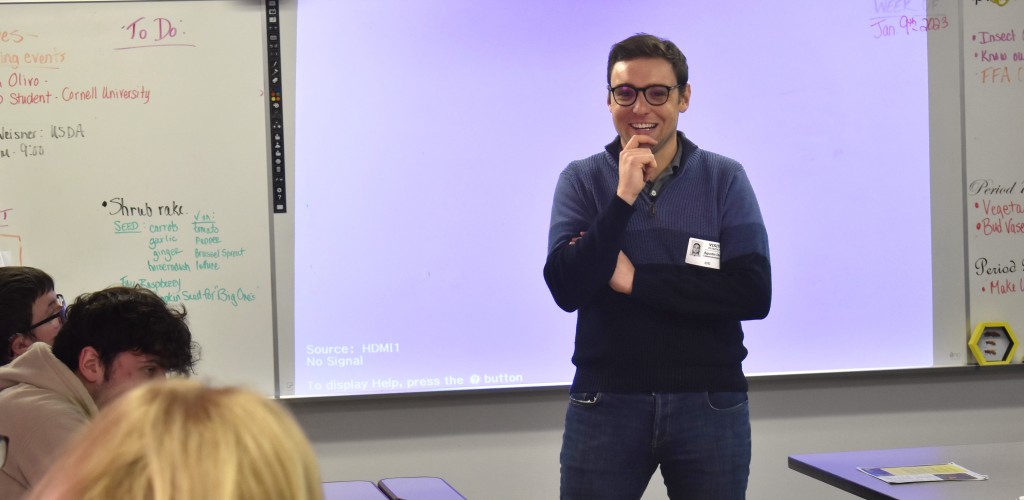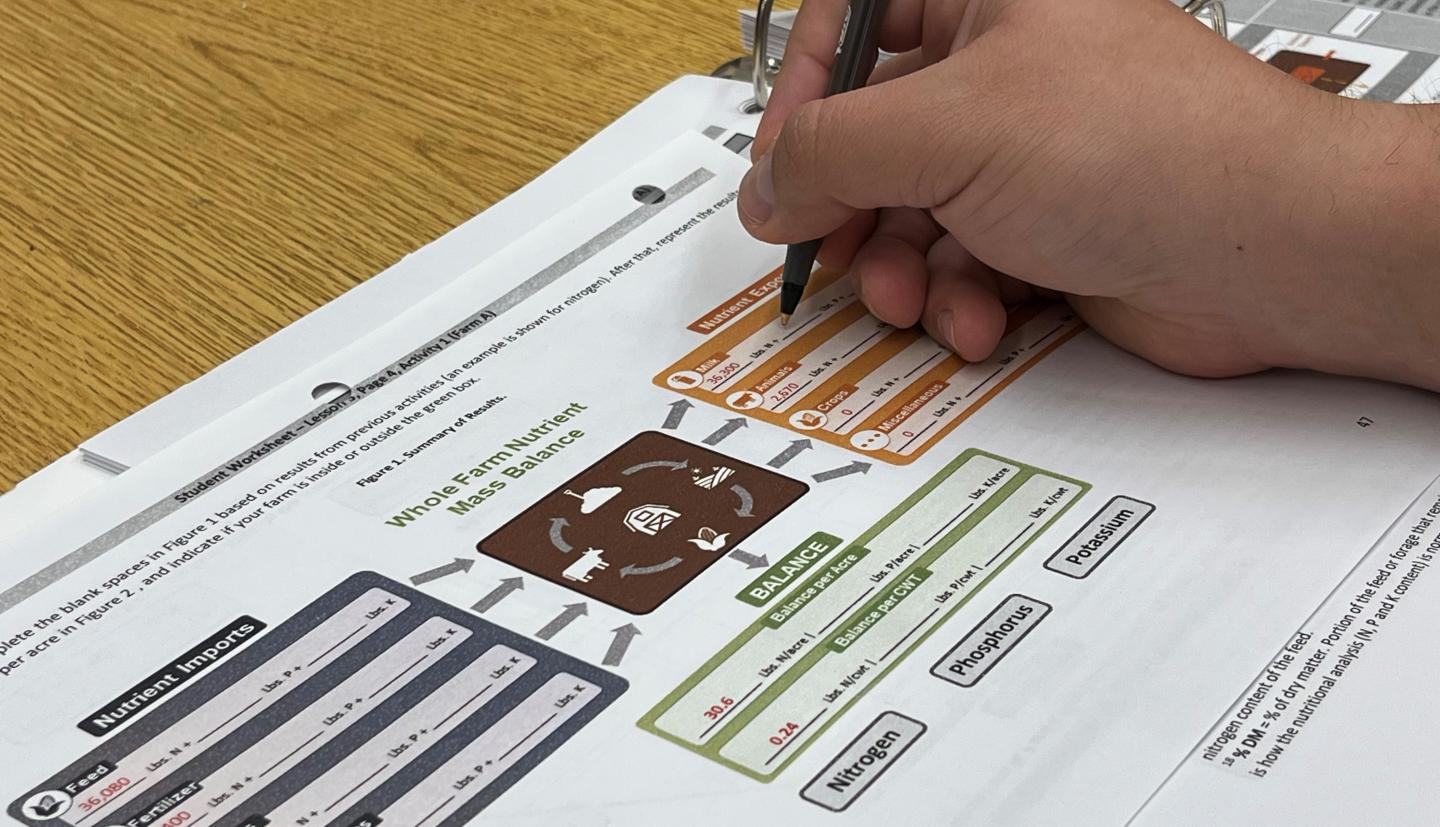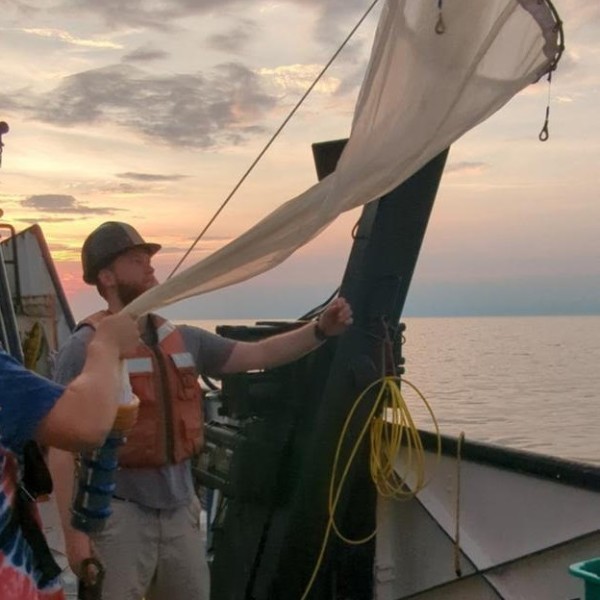In a science classroom in New York City, a group of high school seniors gathered around a table and analyzed nutrient cycling data from a farm in upstate New York. Together, they outlined a plan to support the farm’s nutrient management needs and maintain ecological stability. This was thanks to a curriculum developed under the leadership of Agustín Olivo, a fourth-year Ph.D. candidate at Cornell University.
Olivo’s curriculum pertains to the Whole Farm Nutrient Mass Balance (NMB) program. NMB is run by the Cornell Nutrient Management Spear Program (NMSP) headed by Olivo’s main academic advisor, Quirine Ketterings. It aids farmers with tracking nutrient use for the farm—comparing nutrients brought onto the farm with feed and fertilizer purchases to nutrients leaving the farm as milk, crops or manure. Over 100 farms participate in the NMB assessment each year. Now, it is also being shared with high school students to spark an interest in sustainable agriculture.
Olivo began working on the curriculum in the fall of 2020 as part of his doctoral dissertation, together with Jeffrey Perry, senior lecturer in Global Development; Olivia Godber, research associate with NMSP; Ketterings and several agricultural sciences undergraduate students. In late 2021, the researchers moved to pilot testing.
In the fall of 2022, Olivo introduced the curriculum to teachers, and it is now taught at more than 20 schools thanks to outreach by Perry and Cornell Cooperative Extension educators. “Our main goal was to expose students to topics related to environmental sustainability of agriculture and data management in farms,” said Olivo. “We also wanted them to gain an understanding of career opportunities in these areas.”






